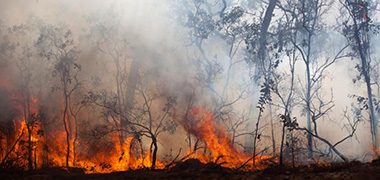
This role has a moderate level of AI exposure. AI can enhance efficiency for some tasks, but this job still relies on human skills and decision-making.
Explore all careersAn Earth Scientist studies the Earth's physical properties and processes, analysing data and collaborating with others to address environmental challenges.
Get qualified to work as an Earth Scientist with a course recognised across Australia. Speak to a training provider to learn more.



Browse occupations related to Earth Scientist



Are you looking to advance your career in the exciting field of Earth Sciences? The Earth Scientist courses in Blue Mountains provide aspiring professionals with the ideal foundation to thrive in this dynamic industry. With a selection of courses tailored for experienced learners, candidates can choose from leading programs such as the Bachelor of Science (Earth Science) and the Bachelor of Science (Environmental Science). Both offerings equip students with the knowledge and practical skills essential for success in various scientific roles.
Situated in the breathtaking Blue Mountains region, these Earth Scientist courses not only offer quality education but also connect you to local job opportunities. As you explore career paths in this field, you’ll discover related roles such as Geophysicist, Hydrologist, and Geologist. Each of these positions plays a crucial role in understanding our planet and ensuring sustainable practices, providing ample opportunities for you to make a meaningful impact.
The comprehensive curriculum of these Earth Scientist courses in Blue Mountains ensures that learners gain a holistic understanding of science. The courses not only focus on theoretical frameworks but also encompass practical applications through hands-on experiences. Students become adept in various scientific methods, paving the way towards specialised careers such as Hydrogeologist and Geochemist. Consequently, graduates emerge well-prepared to tackle real-world challenges related to environmental sustainability and resource management.
Additionally, the rigorous nature of these programmes aligns well with emerging trends in the Earth Sciences, ensuring that students are equipped with contemporary knowledge. Those interested in palaeontology may find opportunities as a Palaeontologist, while tech-savvy individuals can pursue careers as a GIS Specialist. The diverse nature of the Earth Scientist field means there are numerous pathways to explore, catering to various interests and skill sets.
Embracing the rich natural landscape of the Blue Mountains, the Earth Scientist courses encourage not only learning but also a deep appreciation for the environment. With an increase in demand for professionals skilled in this domain, now is the perfect time to embark on your educational journey. Begin your exploration of the Earth Scientist profession today by visiting the Earth Scientist courses in Blue Mountains page on Courses.com.au for detailed information on suitable qualifications and career paths: Earth Scientist courses in Blue Mountains.